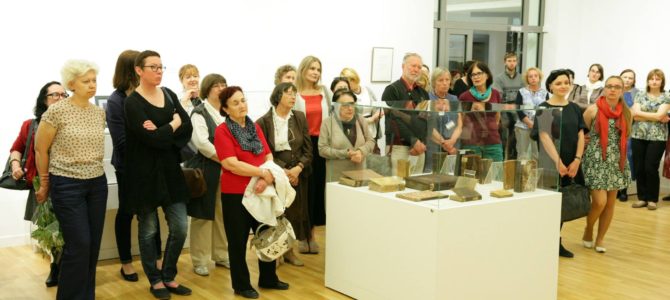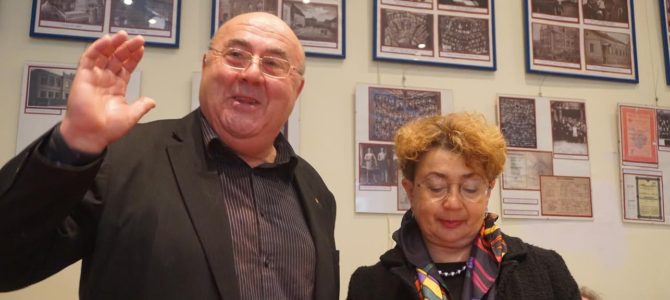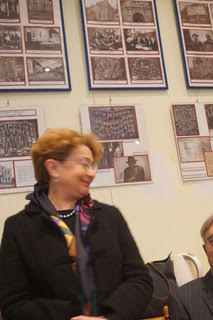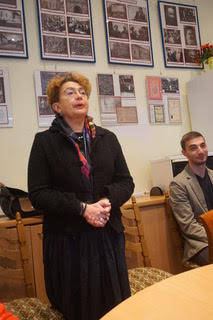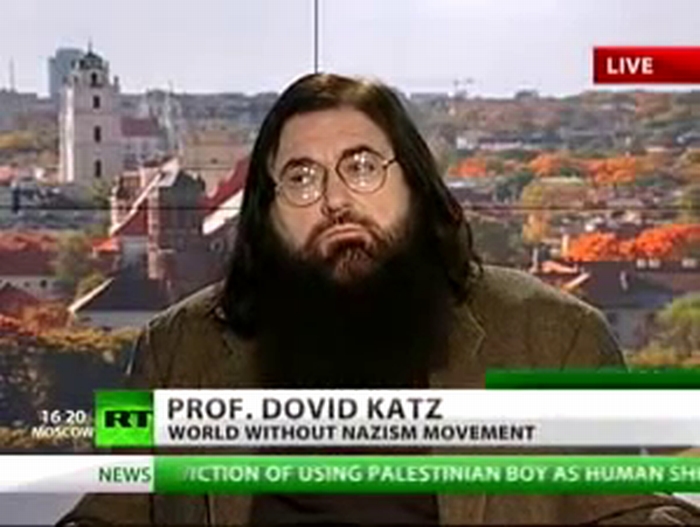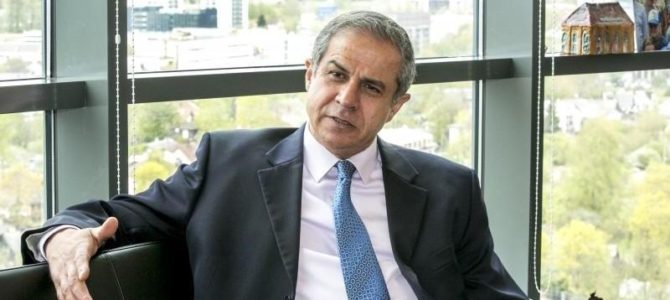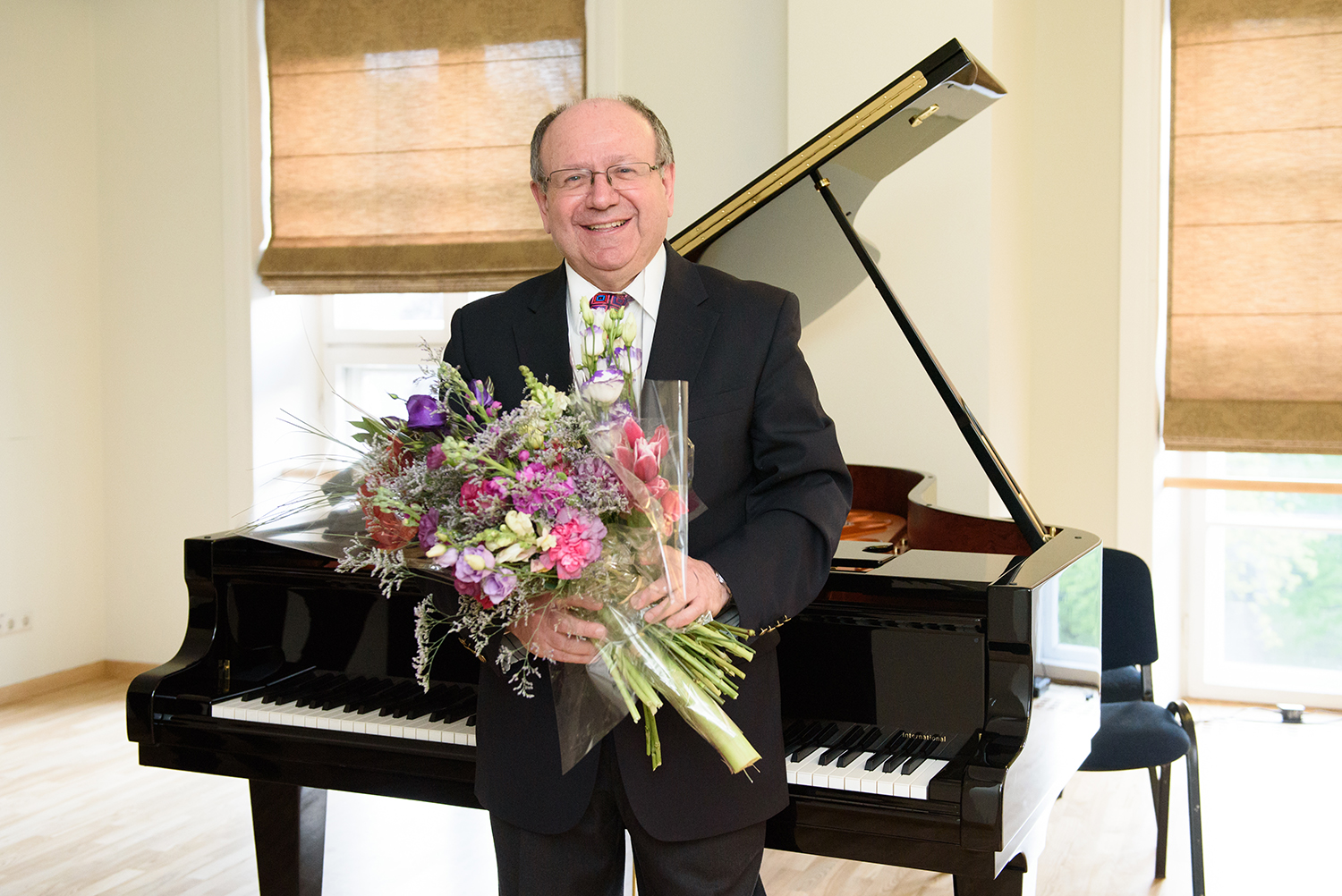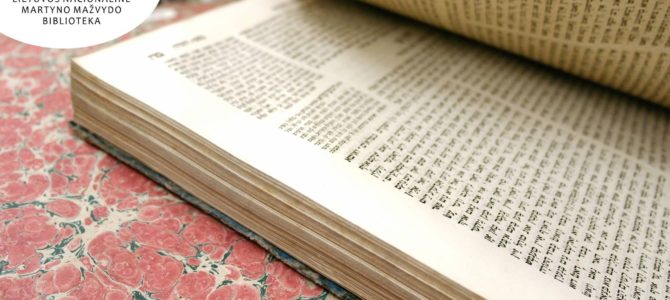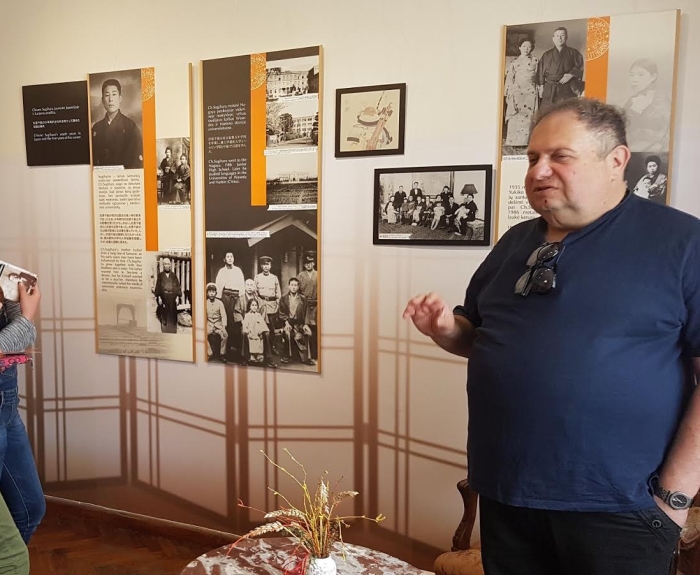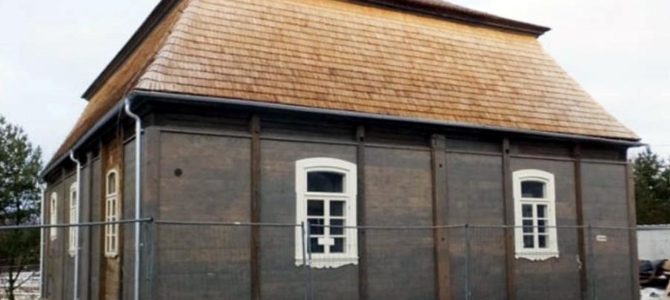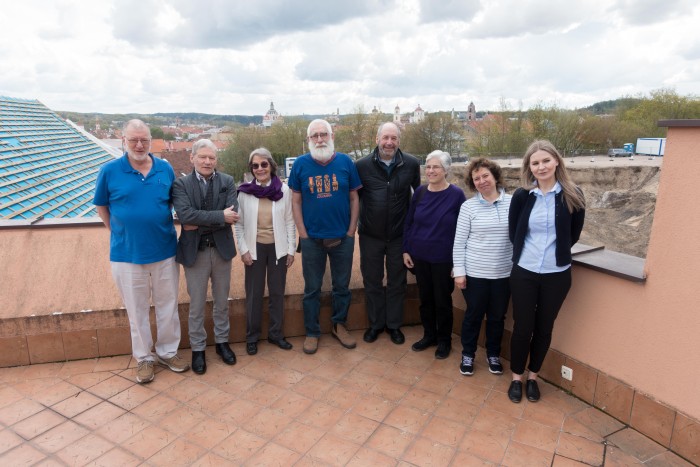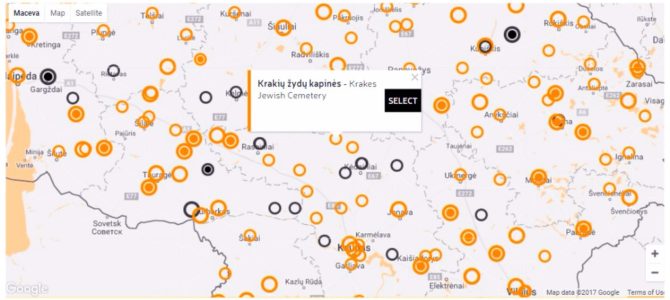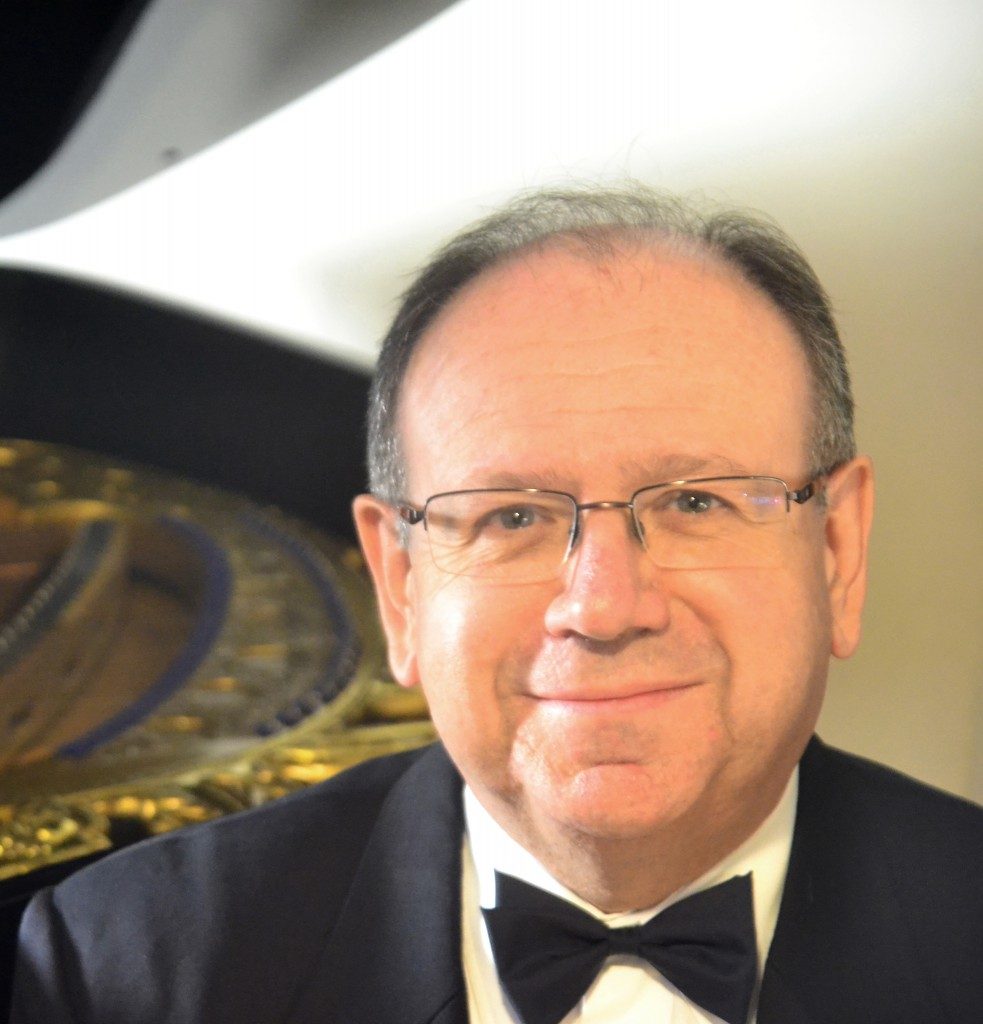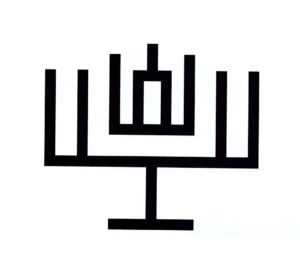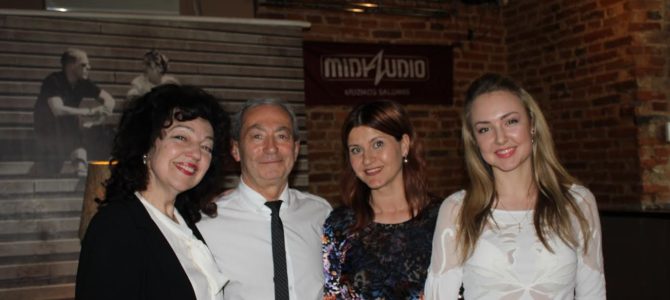
“It’s difficult to express in words our gratitude and respect. It is our duty to remember not just the victims of the Holocaust, but also those brave people who risked their lives and those of their families to rescue Jews, sometimes their neighbors, sometimes friends, but more often complete strangers,” Kaunas Jewish Community chairman Gercas Žakas at an annual evening event to give thanks to rescuers and their children , grandchildren and now even great-grandchildren. He thanked those in attendance for their close and war ties with the Jewish Community and for so enthusiastically attending Jewish Community events.
Singer Judita Leitaitė, pianist Rūta Mikelaitytė-Kašubienė and violinist Paulina Daukšytė performed at the event. Kristina Kazakevičiūtė, the daughter of a rescuer and an actress at the Kaunas Chamber Theater, read some profound poetry and then lightened the mood with some Jewish jokes. Participants in school tolerance education centers also attended and there were discussions of how to teach Jewish culture to school pupils in a more interesting way. The evening ended with the presentation of small gifts.


